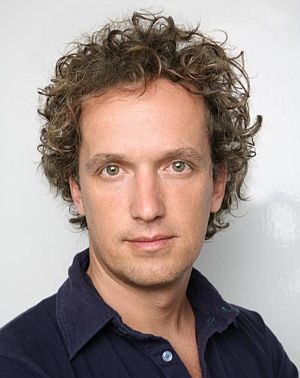A few days ago, acclaimed designer Yves Béhar, received the enormously prestigious 2011 INDEX: Award for Verbien See Better to Learn Better, a social design program collaborating with Augen Optics and the Mexican Government to provide free eyeglasses to underprivileged schoolchildren in Mexico. Béhar is the first designer ever to be honored with this award twice, having been previously acknowledged for his "$100 laptop."
To date, See Better to Learn Better is already responsible for 500,000 free eye exams for children in Mexico, 72 percent having already received glasses. €100,000 from the INDEX: Award will be invested towards further enhancing this platform to extend far beyond Mexican boundaries.
The eyeglasses are designed with precision detail. The running thesis for Béhar is to change the local perception in Mexico that glasses are a handicap. Each frame is durable and ergonomic, and provides each child with key customization elements to make the mass-produced frames feel individualized.
The product line consists of five different frame options and three different sizes, in seven different colors. A unique construction system pairs with an advanced plastic material resulting in a lightweight, unbreakable product. A two-piece assembly simplifies the lens fitting process, and likewise allows children to create two-color frames.
But this is only Béhar's direct output. In today's world where it has become irrefutably clear that information consumption is the basis of education - in a classroom and online - See Better to Learn Better addresses the alarming reality that 11 percent of children in classrooms simply do not learn because they cannot read blackboards or books; further, nearly 70 percent of the 500,000 children to enter the school system every year in Mexico are in need of corrective lenses at or above 0.75.
Given this, Béhar's See Better to Learn Better is far more meaningful than a common design success story, but will hopefully improve the quality of life for underprivileged children, beginning in Mexico, and someday across the globe. Béhar confirms that design can provide social relevance, in this instance by distributing a basic educational tool to those that need it most.
I want to share the following excerpts from my conversation with Béhar:
Jacob Slevin: Please describe See Better to Learn Better in 140 characters or less.
Yves Béhar: Very cool glasses, co-designed with Mexican kids, given away for free, so that every child can see better and learn better.
Jacob Slevin: How did this project first emerge?
Yves Béhar: The Mexican government and the non-profit See Better to Learn Better know that between 11% and 50% of children in school need eyeglasses in order to learn. And yet, the vast majority does not get them, for economic reasons, as well as a stigma against wearing glasses. Together with a Mexican lens manufacturer in Ensenada named Augen, we developed extremely durable, high-quality customizable frames that the kids can make their own by choosing color combinations, shapes and sizes.
Jacob Slevin: You've created product in collaboration with some of the largest manufacturing companies in the design industry, product where your skill-set directly translates into increased corporate earnings. You've likewise created product where your skill-set directly translates into providing goods to people in need. Does the design process in either instance feel more gratifying and does the process vary in terms of its technical discipline?
Yves Béhar: Actually, for me, the needs of for-profit companies and non-profit ones are exactly the same: creating something that the people they serve will love, being efficient with resources and cost, disrupting the status quo. Both types of entrepreneurships, social or business, need design to succeed.
And as far as gratification, I do feel great when I hear from a child or teacher out of the three million that have received a One Laptop Per Child computer. I certainly have a sense that something life changing has happened there. I get a lot of excitement for the Jawbone Jambox from consumers too, and that is gratifying as well.
Jacob Slevin: Do you think See Better To Learn Better will influence eyewear for consumes at large?
Yves Béhar: I am a big believer in attainability, and have been following Charles Eames precept "the best, to the most, for the least." It's been an eye-opener for me to be working with non-profits, and being able to reach extreme efficiency in production. In my opinion there is a very good chance we can develop a for-profit model of See Better, that will finance the non-profit and continue to give-away eyeglasses for free. This is what we will be working on next.
And perhaps Béhar's aspirations will be realized and this social design triumph will spawn a renewable non-profit that is supported by its for-profit offspring.
Jacob Slevin is the Co-Founder of DesignerPages.com and Guest Curator of Huff Post Arts' Design Thursdays.


